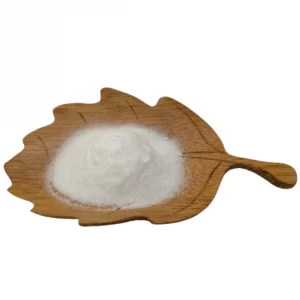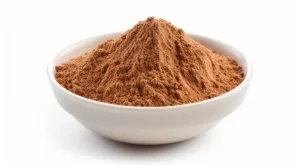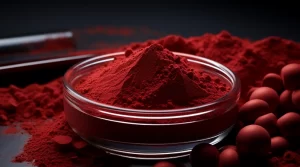Eficacia y uso de la luteína

Luteína eye supplement and its structural isomer zeaxanthin are the two main polar xanthophylls belonging to the family of Carotenoids.
Luteína and zeaxanthin are yellow phytochemicals that cross the retinal barrier and selectively concentrate in the macula of the retina. Due to the presence of these macular pigments, the macular region of the retina is yellow.
In order to protect the retina from oxidative damage and blue light, in nature, lutein zeaxanthin and astaxanthin supplements is used as an effective photoprotectant to protect sensitive photoreceptors from light damage from sunlight, indoor lighting and even electronic devices.
This protection helps maintain healthy vision and reduces the risk of aging and inflammatory eye diseases such as age-related macular degeneration, diabetic retinopathy, and cataracts.
What are the empirical effects (benefits) of lutein?
1. Buy luteína reduces “visual impairment” associated with digital screens
Computer vision syndrome is a syndrome characterized by symptoms associated with prolonged use of digital screens.
Symptoms fall into two categories: eye symptoms such as eye fatigue, blurred vision, astigmatism and dry eyes; Extra-ocular symptoms, such as musculoskeletal pain in the upper extremities, have been reported to range in incidence from 18% to 80%.
An 8-week randomized controlled trial of 57 healthy adults found that supplementation with astaxanthin, lutein, and zeaxanthin reduced the impairment of hand-eye coordination time and accuracy associated with smartphone gaming.
2. Healthy eyes with luteína is beneficial for lipid regulation
Dyslipidemia is a controllable risk factor for the development of cardiovascular disease and is characterized by elevated plasma triglyceride, total cholesterol, or low-density lipoprotein cholesterol concentrations and decreased HDL cholesterol concentrations.
Dyslipidemia alone or in combination with other modifiable risk factors such as diabetes, hypertension, obesity, low levels of physical activity, and smoking can significantly increase the risk of cardiovascular events such as myocardial infarction, ischemic stroke, or death from coronary heart disease.
A meta-analysis of the literature (seven randomized controlled trials) showed that lutein/zeaxanthin supplementation significantly increased high density lipoprotein cholesterol (HDL-C) levels in older adults (aged 60 years or older).
3. Pure luteína zeaxanthin is good for older people’s brain health
Aging alters the cellular, vascular, and structural features of the brain, leading to reduced cognitive function, attention, and memory, as well as delayed processing of cognitive information.
Structurally, brain volume, or brain weight, declines at a rate of 5% per decade starting at age 40, and the actual rate of decline may increase with age, especially over age 70.
In a systematic review of the literature, three intervention studies using MRI in healthy older adults showed that lutein had a positive effect on brain activity in learning, resting state connectivity, and gray matter volume.
Four other cross-sectional studies using MRI showed that lutein was positively associated with brain structure and neural efficiency in cognitive tasks.
4. Luteína is beneficial for retinopathy of prematurity
Retinopathy of prematurity is defined as a progressive disease, a multifactorial retinal disease characterized by abnormal development of retinal blood vessels.
In addition to causing blindness and severe visual impairment, retinopathy of prematurity often occurs in conjunction with other neonatal conditions such as neurological dysfunction, brain dysplasia, necrotizing enterocolitis, ventricular hemorrhage, and bronchopulmonary dysplasia.
A meta-analysis of the literature (three randomized controlled trials with 406 preterm infants younger than 32 weeks) indicated that oral lutein/zeaxanthin did not reduce the incidence of retinopathy of prematurity or the risk of bronchopulmonary dysplasia, septicemia, necrotizing enterocolitis, and mortality.
5. Luteína is beneficial for cognitive function
As people grow older, many aspects change, both physically and psychologically. Some changes may be good, some not.
Cognitive function changes as a normal aging process have been well documented in the scientific literature.
Some cognitive abilities, such as vocabulary, are resilient to brain aging and may even improve with age. Other abilities, such as conceptual reasoning, memory and processing speed, declined over time.
A systematic review of the literature showed that lutein supplementation (10 mg daily for 12 months) improved some measures of cognitive function, such as visual episodic memory and inhibition.
6. Luteína is beneficial for age-related macular degeneration
Age-related macular degeneration (age-related macular degeneration) is a progressive visual impairment associated with the neurodegeneration of retinal pigment-photoreceptor cells, commonly characterized by blurred central vision, deformities, and decreased vision.
Age-related macular degeneration is the leading cause of central vision loss in developed countries, with age being the strongest predictor, and while it rarely occurs in people under 50 years of age, patients over 75 years of age have a more than three-fold increased risk compared to patients 65 to 74 years of age.
A Meta-analysis of nine randomized controlled trials involving 855 patients with macular degeneration showed that supplementation with lutein or related compounds (10 or 20 mg daily for more than 6 months) increased macular pigment density (MPOD) and improved visual acuity and contrast sensitivity.
Seven. Lutein is good for bone health
Bone is a dynamic tissue with structural and metabolic functions. Structurally, bones protect vital organs from mechanical forces, provide levers to transfer force from one area of the body to another, and provide attachment locations for muscle-driven movements.
From a metabolic perspective, bones contain a large number of blood cell types and are the body’s largest reservoir of calcium.
Factors such as adequate nutrition, mechanical load, hormonal status, and genetics can maintain bone homeostasis, and disruption of any of these factors can have harmful consequences.
An observational study (63 healthy adults) showed that while serum lutein and zeaxanthin concentrations were not associated with bone mass, macular pigment density was significantly associated with bone density in the proximal femur and lumbar vertebrae.
8. Lutein enhances dark adaptation
Dark adaptation is the process by which the eye becomes more sensitive to light in the presence of less light.
For example, entering a dark area from a well-lit area (for example, going to the movies), it will be completely dark at first, but after some time it will start to become clear.
Clinically, dark adaptation is A measure of visual function that has been shown to be a symptom of retinal diseases (such as macular degeneration, macular edema, retinitis pigmentosa, diabetes, and hypertensive retinopathy), as well as vitamin A deficiency, dazzling, smoking, aging, and tissue hypoxia.
Two observational studies found that the concentration of macular pigment was related to dark adaptation, and those with higher concentration had better dark adaptation ability.
9. Lutein promotes physical activity
Physical activity is defined as any physical activity that skeletal muscles produce that results in energy expenditure, and according to the American College of Sports Medicine, all healthy adults need at least 30 minutes of moderate-intensity aerobic activity 5 days a week or at least 20 minutes of vigorous-intensity aerobic activity 3 days a week to promote and maintain health.
Physical inactivity is a modifiable risk factor for cardiovascular disease and several chronic diseases, including diabetes, cancer (colon and breast cancer), obesity, high blood pressure, bone and joint diseases (osteoporosis and osteoarthritis), and depression.
A systematic literature analysis suggests that higher lutein levels may be associated with more frequent physical activity, which may help improve physical activity and reduce the risk of chronic disease.
The underlying mechanism may be related to the fact that lutein crosses the blood-brain barrier, regulates the functional characteristics of neurons, and affects the communication between neurons.
10. Lutein is beneficial for diabetic retinopathy
Diabetic retinopathy is currently the leading cause of blindness in people aged 20 to 60 years. During the 10 years after the onset of diabetes, patients with diabetes type 1 and type 2 have a 100% and 60% chance of developing retinopathy, and the rate of blindness is 20 times that of the general population.
Although early detection, blood glucose/blood pressure and lipid control can reduce the risk of disease, it is often difficult to achieve clinically.
A randomized, double-blind, placebo-controlled trial (31 weeks) in 31 patients with non-proliferative diabetic retinopathy showed that lutein supplementation improved visual function (especially low spatial frequency contrast sensitivity) compared to placebo.
11. Lutein enhances stress resistance
Stress refers to all physical and psychological responses to external stimuli. While benign stress can lead to growth, extreme or recurring stress events are often associated with cardiovascular disease, immune disease, mental disorders, and cancer.
A 12-month randomized, double-blind, controlled study of 59 healthy adults showed that lutein and zeaxanthin intake improved psychological stress, serum cortisol, and subhealth status assessment questionnaire values.
12. Lutein reduces cancer risk
About 30 percent of cancers are associated with five major behavioral and dietary risks, such as: high body mass index, low fruit and vegetable intake, lack of physical activity, smoking and alcohol consumption.
Compared with residents of Western countries, Asians are 25 times less likely to develop prostate cancer and 10 times less likely to develop breast cancer, but with the gradual Westernization of lifestyles, the incidence of these cancers has increased dramatically.
A case-control study (521 women) found that higher blood concentrations of carotenoids (alpha-carotene, beta-carotene, lycopene, lutein/zeaxanthin) were associated with a lower incidence of breast cancer.
In addition, a meta-analysis of the literature (including 10 studies, 1958 cases of esophageal cancer and 4529 cases of control group) pointed out that the higher the intake of carotenoids (beta-carotene, alpha-carotene, lycopene, beta-cryptoflavin, lutein and zeaxanthin), the higher the intake of carotenoids, the lower the intake of carotenoids. The lower your risk of esophageal cancer.
In a case-control study of 1,993 colorectal cancer patients and 2,410 control subjects, a higher intake of lutein-rich foods (including spinach, broccoli, lettuce, tomatoes, cloves and orange juice, carrots, celery, and green vegetables) significantly reduced the risk of colorectal cancer.
13. Lutein improves visual adaptation
Glare disability refers to the phenomenon of short-term loss of visual accuracy caused by uncontrolled light such as high intensity in the visual range. Glare not only easily causes eye fatigue, affects reading and learning, but also may cause traffic accidents.
In addition, light stimulation recovery means that it takes a while for the eye to return to normal vision after exposure to bright light, and aging and abnormal visual cells may lead to increased recovery time.
Several studies have found that supplementation with lutein and zeaxanthin (12 mg daily for 6-12 months) can significantly increase macular pigment density, in addition to improving the transient glare disabling phenomenon caused by bright light, and help reduce the time required for light stimulation recovery.
14. Lutein is beneficial for mental performance
Intelligence can be defined in many ways, including but not limited to abstract thinking, understanding, self-awareness, communication, reasoning, learning, emotional knowledge, and the ability to plan and solve problems
And intelligence is not just about learning book knowledge, academic skills, or exam skills, it reflects a broader and deeper ability to understand our surroundings.
Intelligence, the ability to grasp or understand things or figure out what to do, is also often seen as a predictor of academic achievement, job performance and income.
An observational study of 114 adults with a BMI of 25 kg/m² found that those with a higher density of macular pigment (the lutein-like molecule in the retina) had significantly better intelligence regardless of their body fat percentage.
In addition, the study further found that the influence of macular pigment on Intelligence level, especially to improve Fluid intelligence (Fluid Intelligence) is most significant.
Fluid intelligence: The ability to solve problems, create, and respond flexibly to challenges in new situations without prior knowledge.
16. Lutein prevents cardiovascular and metabolic diseases
Cardiovascular and related metabolic abnormalities, can be said to be a large number of health problems, there is a new generation of metabolic abnormalities, from the risk of cardiovascular disease is 3 times higher than the general population, related cardiovascular risk factors include high blood pressure, high cholesterol, high blood sugar.
A large systematic review (71 studies with 387,000 participants) and meta-analysis found that those with a higher intake of leaf yellow, or blood lutein, had a higher concentration. Helps to reach the following state (data found after mathematical analysis).
12 percent lower risk of coronary heart disease, a atherosclerotic disease of the cardiovascular arteries that can lead to angina pectoris and heart attacks.
18% lower risk of stroke
25% lower risk of metabolic syndrome (a health problem that includes obesity, blood pressure, blood sugar, and lipid abnormalities)
The underlying mechanism is believed to be related to the antioxidant and anti-inflammatory effects of lutein, which are one of the main causes of cardiovascular diseases and metabolic disorders.
17. Lutein enhances visual recognition
Modern 3C dependence is high, often cause early aging of the eyes, if the following phenomenon, may be a typical visual aging, such as narrowed field of vision, slow response to visual information, focal length is difficult to adjust, light adaptation ability is poor.
In a recent controlled study, it was found that taking lutein and zeaxanthin increased visual processing ability (especially the ability to distinguish objects and light sources) by 20%, which significantly helped driving safety, reading speed, sports performance, and cognitive execution.
18. Lutein improves skin aging
Skin aging is a complex physiological process, vision vitamins plus lutein currently known mainly can be divided into internal aging (related to genes), usually can not be reversed, the second is external aging, mainly related to ultraviolet radiation damage, also known as light aging.
Even though the two aging processes are independent of each other, the molecular mechanisms are the same, namely, damage to reactive oxygen species (which are naturally produced by cell metabolism), often resulting in degradation or reduced synthesis of collagen.
There is no shortcut or magic bullet to combat aging, the best strategy is through a good lifestyle and antioxidant food.
A double-blind controlled study has shown that lutein and zeaxanthin and lutein esters, in addition to helping to improve overall skin tone and brightness, can also increase the minimum dose of skin redness, and may have the effect of whitening and improving skin condition.
The underlying mechanism is related to the antioxidant properties and photoprotective activities of lutein and zeaxa, which can reduce melanin formation and reduce the damage of harmful light
19. Lutein relieves visual fatigue
Modern people often cannot work without computers, and mobile phones and tablets are also at the side of leisure, so the eyes often appear acid, numbness, swelling, pain and other uncomfortable feelings, these symptoms represent the distress signal issued by the eyes, so every 30 minutes after focusing on the eyes, please rest 5 to 10 minutes, so as not to cause accelerated aging of the eyes.
In a study on visual fatigue
1、Effects of Astaxanthin, Lutein, and Zeaxanthin on Eye-Hand Coordination and Smooth-Pursuit Eye Movement after Visual Display Terminal Operation in Healthy Subjects: A Randomized, Double-Blind Placebo-Controlled Intergroup Trial
2、The Macular Carotenoids Lutein and Zeaxanthin Are Related to Increased Bone Density in Young Healthy Adults
3、Carotenoids and colon cancer
4、Specific serum carotenoids are inversely associated with breast cancer risk among Chinese women: a case-control study
() ()


